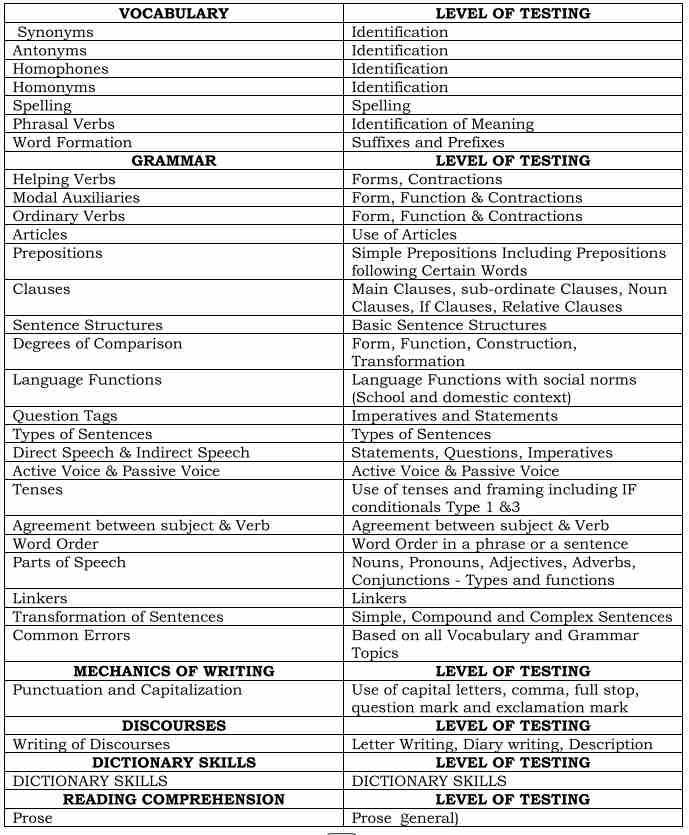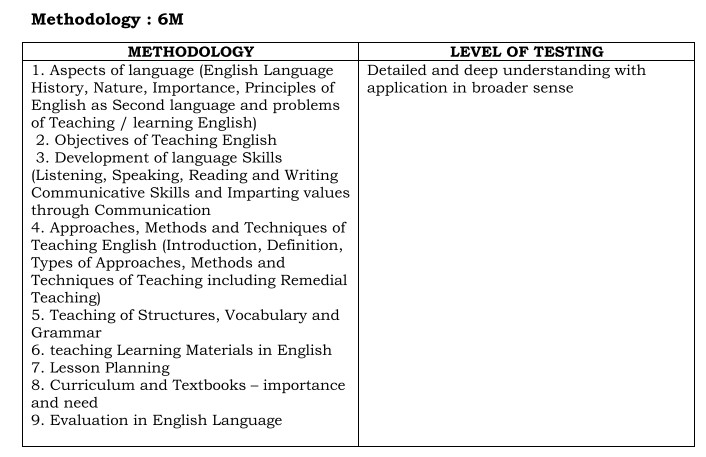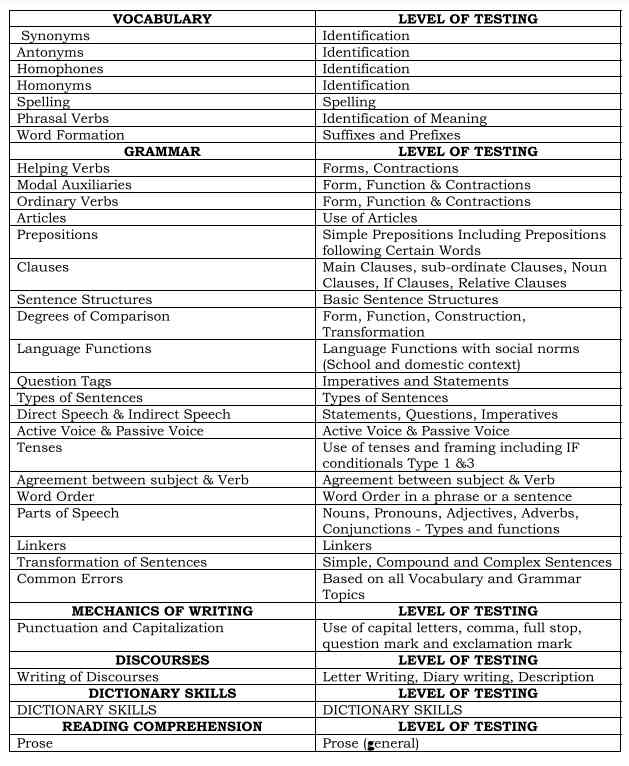AP TET Preparation Strategy 2022: The Andhra Pradesh State Teacher Eligibility Test (AP TET 2022) will be held from 6th August to 21st August 2022 across all 13 Districts in Andhra Pradesh by the Department of School Education, Govt. of Andhra Pradesh State for the recruitment of Teachers for Classes I to VIII in schools of the State Government, Mandal Parishad, Zilla Parishad Schools, Private Aided Schools, and Private unaided schools in Andhra Pradesh State. Online applications were invited from eligible candidates for the AP TET 2022 from 16th June 2022 to 16th July 2022.
In this article, we have shared the AP TET 2022 Preparation Strategy and Important Topics for Paper-I A & B and Paper-II A & B.
AP TET 2022 Calendar
| AP TET 2022 Events | Important Dates |
| AP TET 2022 Notification Release Date | 10th June 2022 |
| Online Payment of Fees | 15th June to 15th July 2022 |
| AP TET 2022 Application Start Date | 16th June 2022 |
| AP TET 2022 Application End Date | 16th July 2022 |
| AP TET Admit Card 2022 Release Date | 25th July 2022 Onwards |
| Online Mock Test Availability | 26th July 2022 Onwards |
| AP TET 2022 Paper-I (A&B), Paper-II (A&B) | 6th August to 21st August 2022 |
| Release of Initial Answer Key | 31st August 2022 |
| Receiving of Objections on Initial Key | 1st September to 7th September 2022 |
| Final Answer Release Date | 12th September 2022 |
| Final Result Declaration | 14th September 2022 |
AP TET Exam Pattern 2022
All questions will be Multiple Choice Questions (MCQs), each carrying One Mark, with four alternatives out of which One Answer will be correct. There will be no Negative Marking. There will be Two Papers for the TET Paper-I will be for a person who intends to be a teacher for Classes I to V, and Paper-II will be for a person who intends to be a teacher for Classes VI to VIII. A person who intends to be a Teacher either for Classes I to V or for Classes VI to VIII shall have to appear in both Papers (Paper I and Paper II).
The Question Paper shall be bilingual (i.e). English followed by the Language-I chosen by the candidates for all Languages except Sanskrit. For the candidates choosing Sanskrit, the questions shall be in Telugu followed by Sanskrit (Devanagari Script).
AP TET Paper-I A & B
Duration of examination: 2½ hours (2 hours and 30 minutes)
Paper I A (for Classes I to V)
| S.No. | Subject | No. of MCQs | Marks |
| 1 | Child Development and Pedagogy | 30 | 30 |
| 2 | Language I | 30 | 30 |
| 3 | Language II (English) | 30 | 30 |
| 4 | Mathematics | 30 | 30 |
| 5 | Environmental Studies | 30 | 30 |
| TOTAL | 150 | 150 | |
Paper I-B (for Classes I to V)
| S.No. | Subject | No. of MCQs | Marks |
| 1 | Child Development and Pedagogy | 30 | 30 |
| 2 | Language I | 30 | 30 |
| 3 | Language II (English) | 30 | 30 |
| 4 | Mathematics | 30 | 30 |
| 5 | Environmental Studies | 30 | 30 |
| TOTAL | 150 | 150 | |
NOTE:
(i) The test items on Child Development & Pedagogy will focus on Educational Psychology of teaching and learning relevant to the primary
(ii) How to choose language–I of APTET Paper-I: The following languages are offered under First Language in the Schools under the State Syllabus viz., Telugu, Urdu, Hindi, Kannada, Tamil and Odiya. A Candidate has to choose one of these 6 Languages under Language-I of TET, those candidates should have compulsorily studied that Language either as medium of study or as First Language at least up to Class X. The candidates who studied CBSE/ ICSE curriculum can choose the Language which they studied up to Class
(iii) The Language-II shall be English for all the candidates.
(iv) For 30 MCQs under Language I&II, 24 MCQs will be on content and 6 MCQs on Pedagogy on a Language.
AP TET Paper-II A & B
Duration of examination: 2½ hours (2 hours and 30 minutes)
Paper II- A (VI to VIII)
| S.No. | Subject | No. of MCQs | Marks |
| 1 | Child Development and Pedagogy | 30 | 30 |
| 2 | Language I | 30 | 30 |
| 3 | Language II (English) | 30 | 30 |
|
4 | (a) For Mathematics & Science Teachers: (b) For Social Studies Teacher (c) For any other Teacher – Either (iv)(a) or (iv)(b) |
60 |
60 |
| TOTAL | 150 | 150 | |
Paper II- B (VI to VIII)
| S.No. | Subject | No. of MCQs | Marks |
| 1 | Child Development and Pedagogy | 30 | 30 |
| 2 | Language I | 10 | 10 |
| 3 | Language II (English) | 10 | 10 |
| 4 | Category of Disability Specialization and Pedagogy | 100 | 100 |
| TOTAL | 150 | 150 | |
| AP TET 2022 Related Links |
| AP TET Syllabus and Latest Exam Pattern PDF |
| AP TET Admit Card 2022 Shift Timings, Mock Tests |
| AP TET Eligibility Criteria, Age Limit, Education |
AP TET Preparation Strategy Paper-I A & B
All questions will be Multiple Choice Questions (MCQs), each carrying One Mark, with four alternatives out of which One Answer will be correct. There will be no Negative Marking. Paper I A (for Classes I to V); Number of Multiple Choice Questions MCQs – 150 Duration of examination: 2½ hours (2 hours and 30 minutes).
Child Development and Pedagogy
The test items on Child Development & Pedagogy will focus on the Educational Psychology of teaching and learning relevant to the primary level.
For Important Topics in Child Development and Pedagogy, Click Here. (Page 1-3) and (Page 18)
Language I
The following languages are offered under First Language in the Schools under the State Syllabus viz., Telugu, Urdu, Hindi, Kannada, Tamil and Odiya. A Candidate has to choose one of these 6 Languages under Language-I of TET, those candidates should have compulsorily studied that Language either as medium of study or as First Language at least up to Class X. The candidates who studied CBSE/ ICSE curriculum can choose the Language which they studied up to Class X.
In the Language I, candidates will be based on Proficiency in the language, Elements of language, communication and comprehension abilities (Standard up to class X level).
For Important Topics in Language I, Click Here. (Page 4-10) and (Page 19-25)
Environmental Studies
The syllabus for Environmental Studies is designed on the basis of topics of Classes I to V. The difficulty standard as well as linkages of content/topics could be up to Secondary Stage (up to Class X) for testing. There will 24 MCQs will be on Content and 6 MCQs on Pedagogy.
For Important Topics in Environmental Studies, Click Here. (Page 14-17) and (Page 29-32)
Language II (English)
The syllabus for Language II shall also be based on Proficiency in the language, Elements of language, communication and comprehension abilities (Standard up to class X level). Refer to the table below for topic-wise preparation.


Mathematics
The syllabus for Mathematics is also designed on the basis of topics of Classes I to V. The difficulty standard as well as linkages of content/topics could be up to Secondary Stage (up to Class X) for testing. The test items in Mathematics and Environmental Studies will contain Multiple Choice Questions (MCQs) not only on Content but also on Pedagogy. In Mathematics, 24 MCQs will be on Content and 6 MCQs on Pedagogy. Refer to table below for topic-wise preparation.
| Paper-I A Mathematics | Paper-I B Mathematics |
| I. Numbers II. Mensuration III. Geometry IV. Data Handling V. Algebra VI. Arithmetic
Mathematics Methodology (D.El.Ed.) Nature and Definitions of Mathematics Aims, values and instructional objectives of teaching Mathematics Methods of Teaching & Remedial measures in Mathematics Instructional Material, TLM and Resource Utilization in Mathematics Curriculum, Textbook & Instructional Planning | I. Numbers II. Mensuration III. Geometry IV. Data Handling
Mathematics Methodology (D.El.Ed.) Nature and Definitions of Mathematics Aims, values and instructional objectives of teaching Mathematics Methods of Teaching & Remedial measures in Mathematics Instructional Material, TLM and Resource Utilization in Mathematics Curriculum, Textbook & Instructional Planning. Evaluation and Continuous Comprehensive Evaluation |
AP TET Preparation Strategy Paper-II A & B
The syllabi for TET of concerned Paper II (A) are specially based and topics of Classes VI to VIII. The difficulty standard of questions as well as their linkages could be up to Senior Secondary Level (12th class).
Child Development and Pedagogy
The test items on Child Development & Pedagogy will focus on Educational Psychology of teaching and learning relevant to the Elementary level for Paper II-A.
For Important Topics in Child Development and Pedagogy, Click Here. (Page 33-35) and (Page 64).
Language I
The following Languages are offered under First Language in Secondary schools under the State Syllabus viz., Telugu, Urdu, Hindi, English, Kannada, Tamil, Odiya and Sanskrit. Other than Language Teachers has to choose one of these 8 Languages under Language I of TET, those candidates should have compulsorily studied that Language either as medium of study or First Language at least up to Class-X. The candidates who studied CBSE/ ICSE curriculum can choose the Language which they studied up to Class X. Language Teachers have to choose the Language of their study in Pandit Training concerned under Language-I of TET Paper II (A).
The syllabus for Language I for Paper II-A shall be based on proficiency in the Language, Elements of Language, Communication and Comprehension abilities (standard up to Senior Secondary Level (12th Class). There will be 30 MCQs for Language I on content only.
For Important Topics in Language I, Click Here. (Page 37-42) and (65-70).
Language II
The syllabus for Language I for Paper II-A shall be based on proficiency in the Language, Elements of Language, Communication and Comprehension abilities (standard up to Senior Secondary Level (12th Class). There will be 30 MCQs for Language I on content only. Refer to the table below for topic-wise preparation.

Mathematics and science/ Social Studies/ Languages (Telugu, Urdu, Hindi, English, Kannada, Odiya, Tamil and Sanskrit)
(i) Mathematics 30 MCQs (Content 24, Pedagogy 6)
(ii) Science 30 MCQs (Content 24, Pedagogy 6) Content –Physical Science 12 MCQs. Content –Biological Science 12 MCQs. Science Pedagogy 06 MCQs.
(iii) Social Studies 60 MCQs (Content 48, Pedagogy 12)
(iv) Language Teachers 60 MCQs (Content 48, Pedagogy 12)
Refer to table below for topic-wise preparation.
| Subjects & Important Topics | ||
| Mathematics | Science | Social Studies |
| I. Arithmetic II. Number System III. Geometry IV. Mensuration V. Algebra VI. Statistics VII. Probability VIII. Coordinate Geometry IX. Trigonometry
Methodology 1. Meaning and Nature of Mathematics, History of Mathematics. 2. Contributions of Great Mathematicians - Aryabhatta, Bhaskaracharya, Srinivasa Ramanujan, Euclid, Pythagoras, George cantor. 3. Aims and Values of teaching Mathematics, Instructional objectives (Blooms taxonomy) 4. Mathematics curriculum: Principles, approaches of curriculum construction, -Logical and Psychological, Topical and Concentric, Spiral approaches. Qualities of a good Mathematics textbook. 5. Methods of teaching mathematics- Heuristic method, Laboratory method, Inductive and Deductive methods, Analytic and Synthetic methods, Project method and Problem Solving method. 6. Unit Plan, Year Plan, Lesson Planning in Mathematics. 7. Instructional materials, Edgar Dale's Cone of Experience. 8. Evolving strategies for the gifted students and slow learners, 9. Techniques of teaching mathematics like Oral work, Written work, Drilling, Assignment, Project, Speed and Accuracy. 10. Mathematics club, Mathematics structure, Mathematics order and pattern sequence. 11. Evaluation - Types, Tools and Techniques of Evaluation, Preparation of SAT Analysis, Characteristics of a good test. | Physical Science 1. Measurement 2. Motion 3. Force and Friction 4. Newton's Law of Motion 5. Gravitation 6. Floating bodies 7. Work, Energy 8. Sound 9. Heat 10. Light 11. Electricity 12. Electro-Magnetism 13. Some Natural Phenomenon 14. Stars and solar system 15. Separation of Substances 16. Changes around us 17. Matter 18. Metals and Non-metals 19. Synthetic fibers and Plastics 20. Coal and petroleum 21. Combustion fuels and flame 22. Water 23. Acids, Bases and Salts
Methodology 1. Definition, Nature, Structure and History of Science 2. Aims, Values, Instructional Objectives of teaching Science and Academic Standards in Science 3. Methods of Teaching Science 4. Teaching Learning Material in Teaching of Science - TLM in Science – Use of ICT. 5. Instructional Planning 6. Science Laboratory 7. Science Teacher - Changing Roles 8. Science Curriculum and its transaction, NCF-2005, SCF- 2011 9. Science Textbooks. 10. Evaluation - CCE - Formative Assessment, Summative Assessment - Designing and Administration Analysis of Scholastic Achievement Test (SAT)
Biological Science 1. Living world 2. Life Processes 3. Our Environment
Methodology 1. Definition, Nature, Structure and History of Biological Science 2. Aims, Values, Instructional Objectives of teaching Science and Academic Standards in Science 3. Methods of Teaching Science 4. Teaching Learning Material in Teaching of Science - TLM in Science – Use of ICT. 5. Instructional Planning 6. Science Laboratory 7. Science Teacher - Changing Roles 8. Science Curriculum and its transaction, NCF-2005, SCF- 2011 9. Science Textbooks. 10. Evaluation - CCE - Formative Assessment, Summative Assessment - Designing and Administration Analysis of Scholastic Achievement Test (SAT) | Theme - I: Diversity on the Earth Theme - II: Production Exchange and Livelihoods Theme -III: Political Systems and Governance Theme -IV: Social Organisation and Inequities Theme - V: Religion and Society Theme -VI: Culture and Communication
Methodology 1. Aims and objectives of learning Social Sciences 2. School curriculum and resources in Social Sciences 3. Social Sciences as on integrating area of study: Context and concerns 4. Approaches and strategies for learning Social Sciences 5. Community Resources and Social Sciences Laboratory 6. Tools and techniques of assessment for learning: Social Sciences 7. Evaluation - CCE - assessment framework - assessment learning of students with special need. |
Category of Disability Specialization and Pedagogy
Topics to focus include Autism Spectrum Disorders, Hearing Impairment, Learning Disability, Mental Retardation/ Intellectual Disability, Multiple Disabilities, and Visual Impairment.
For more detailed topic-wise in Category of Disability Specialization and Pedagogy, Click Here. (Page 72-73).
AP TET Qualifying Marks 2022
The criteria for considering pass in APTET is as follows:
| Category | Pass Marks |
| General | 60% marks and above |
| BC | 50% marks and above |
| SC/ST/ Differently-abled (PH) & Ex- servicemen | 40% marks and above |
AP TET Admit Card 2022 Download Link (Active)
Comments
All Comments (0)
Join the conversation